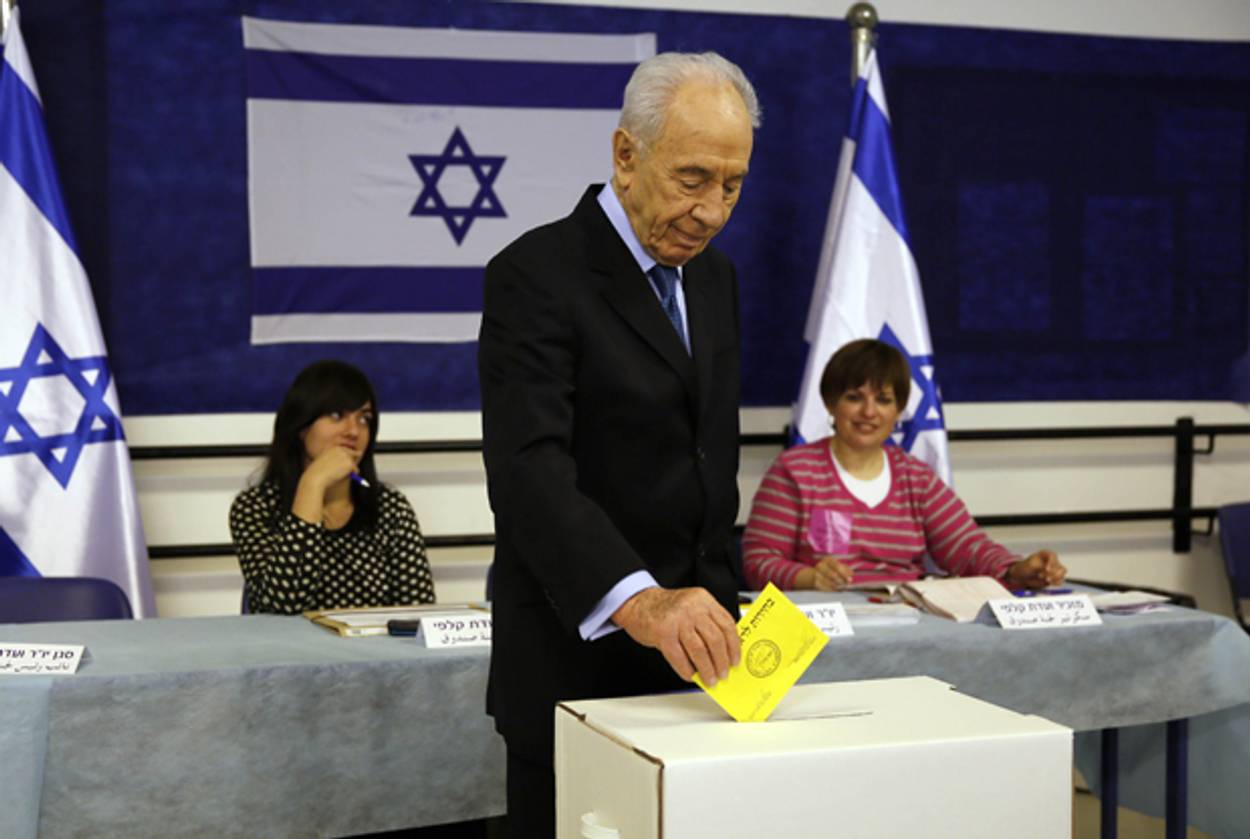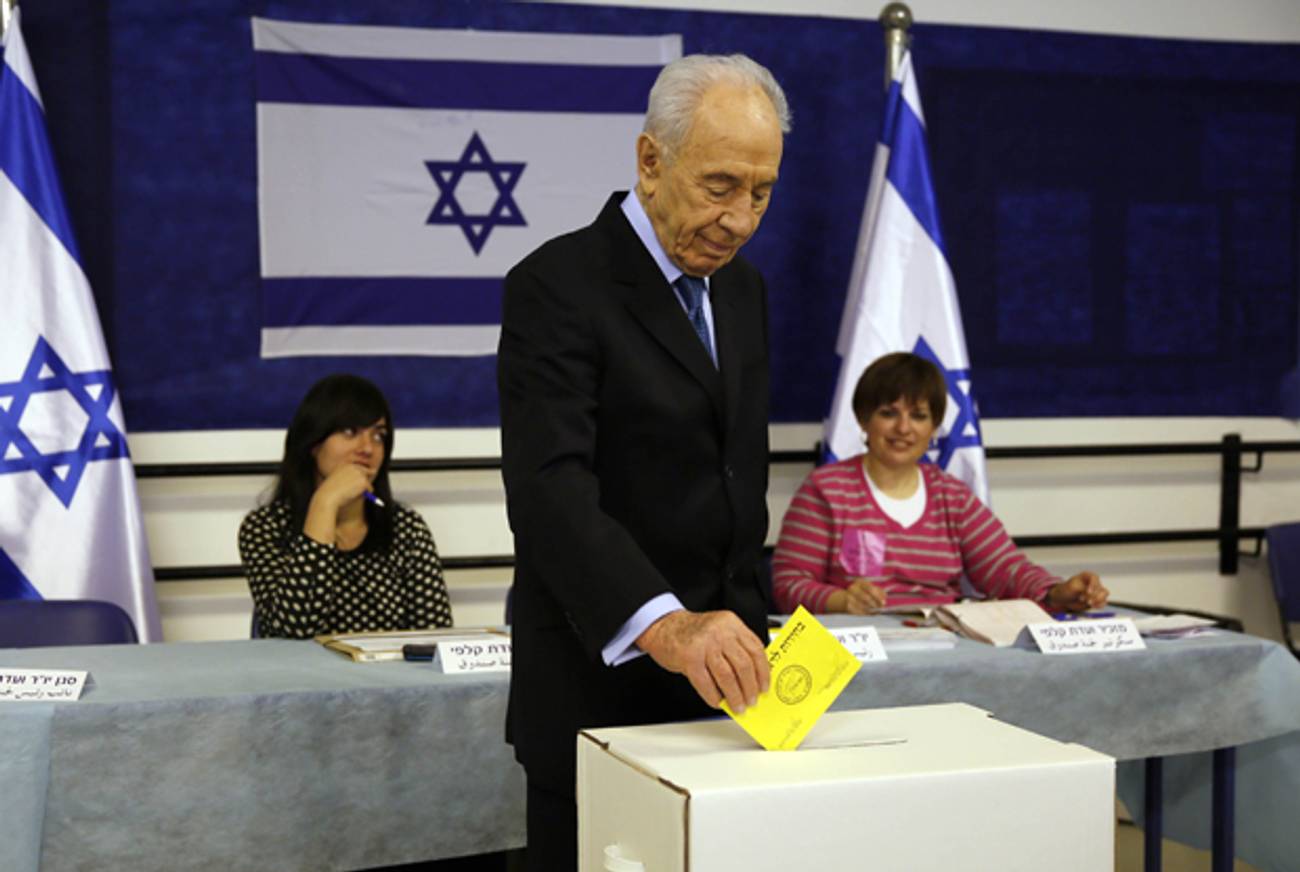A Guide to Israel’s Municipal Elections
The potential new mayors of Tel Aviv, Haifa, and Jerusalem




Today, all across Israel, citizens aged 17 and above will take to the polls. They will vote for mayors and council members, and bring to its conclusion one of the most uneventful election seasons in recent memory. Israel’s municipal races, held every five years, usually take place with little fanfare, coming as they do after the unofficial August vacances and the High Holidays. But in the past, the mayoralty of a large Israeli city was considered on par with a senior cabinet post, attracting retired generals and policeman alongside seasoned politicians. It was seen as a stepping stone, as in the (successful) case of Jerusalem’s Ehud Olmert or the (failed) one of Haifa’s Amram Mitzna, en route to the highest echelons of Israeli politics. Today, though, the challengers facing the incumbents of Jerusalem, Tel Aviv and Haifa—and other smaller cities and towns—are largely of a less impressive pedigree.
In Tel Aviv, as Liel Leibowitz has noted, the elections have been reduced to squabbling between factions on the left. The only serious opponent to three-term mayor Ron Huldai is Nitzan Horowitz, a journalist-turned-Meretz-MK. Horowitz is well liked, but seems so harmless that Huldai—formerly a Brigadier General in the IAF, and principal of one of Tel Aviv’s top high schools—has pretty much given up on campaigning.
Haifa, the northern port city, used to be known as “red Haifa” because of its strong socialist bent. But the political trajectory of Mayor Yona Yahav, whose bid for re-election is virtually unchallenged, shows that those days are long gone. A Labor MK in the late nineties, Yahav was first elected in Haifa a decade ago as a candidate for Shinui, the liberal-centrist party fronted by Yair Lapid’s father Tommy. By 2006, Shinui had evaporated and Yahav jumped ship to Kadima. Now Kadima is a shadow of its former self, and Yahav is running an unaffiliated campaign.
Lack of political affiliation is another running theme in these elections. While Israeli city halls were traditionally dominated by the large political powers, most parties today are content to back a couple of local operatives in their run for city council, and have given up on the mayoral elections entirely. One of the few noteworthy efforts on the part of a large party was made by the reliably energetic Naftali Bennett, in a last-ditch effort to mobilize voters on behalf of his Jewish Home party, which has municipal candidates in 88 races. In a video released Sunday, Bennett and fellow MK Ayelet Shaked sit on a park bench awaiting their dealer, who has promised to deliver them “good stuff.” They are excited: they’ve never touched such things—only leftists do, says Shaked. But when the dealer arrives, the “good stuff” is revealed to be voting slips with “tov” (Hebrew for good, and also a moniker for Bennett’s party) imprinted on them.
The most prominent exception to the non-affiliation rule is Jerusalem, the site of today’s most interesting race. Nir Barkat is completing his first term as mayor of a city almost universally regarded as having been transformed for the better, though his detractors say he’s taking credit for the hard work of his predecessors. Barkat—a secular high-tech entrepreneur turned multi-millionaire philanthropist—won the post as an independent after managing to strike a balance between attracting enough of the city’s national religious voters by projecting an ultra-hawkish image—and not alienating the rest of the public.
When I profiled him last summer, he said he was confident he’d be re-elected, but at that point his challenger Moshe Leon had not yet jumped into the fray. Leon is a mega-accountant and part-time-politico from the Tel Aviv suburb of Givatayim. His candidacy is the improbable brainchild of Yisrael Beiteinu’s Avigdor Lieberman and Shas’ Arye Deri, whose desire to gain political footing in Jerusalem has helped bridge the gap between the two parties’ often adverse positions (earlier this year, Shas even ran an ad calling into question the Jewishness of Yisrael Beiteinu’s voters). Leon, who almost as improbably spells his last name Lion, is fighting an uphill battle. Despite ostensibly running on a Likud-Yisrael-Beiteinu ticket, he has yet to receive the endorsement of Likud’s chairman, Prime Minister Netanyahu. And his lack of familiarity with Jerusalem—he recently referred to a downtown movie theater that had ceased operation in 1995—has been the brunt of countless memes. But Deri and Lieberman know their political calculus: if Leon, who is religious, succeeds in capturing enough of the ultra-orthodox and national religious vote—though his prospects seem increasingly dire—he will be Jerusalem’s next mayor.
Just two years after the J14 social justice protests swept the streets of Israel’s cities, it appears their impact on the local level—even in Tel Aviv, where Mayor Huldai was often portrayed as the movement’s nemesis—has been negligible. The lack of public engagement in the municipal scene, manifest in today’s ho-hum races, may also owe itself to widespread disillusionment with a corrupt system. Four Israeli mayors have been arrested this year, four others indicted, and several dozen are under some form of investigation. Small wonder, then, that 63 percent of Israelis think their municipality is corrupt. And perhaps many of the incumbent mayors just seem too formidable to risk challenging (there is no term limit for Israeli mayors). But whatever the reason, the lack of a vibrant municipal scene is troubling.
Related: In Tel Aviv’s Mayoral Elections, It’s the Left Versus the Far Left
How Nir Barkat’s Lack of Poetry Brought Jerusalem Back From the Dead
Previous: Israel’s Angriest Campaign Ads Yet
Tal Kra-Oz is a writer based in Tel Aviv.